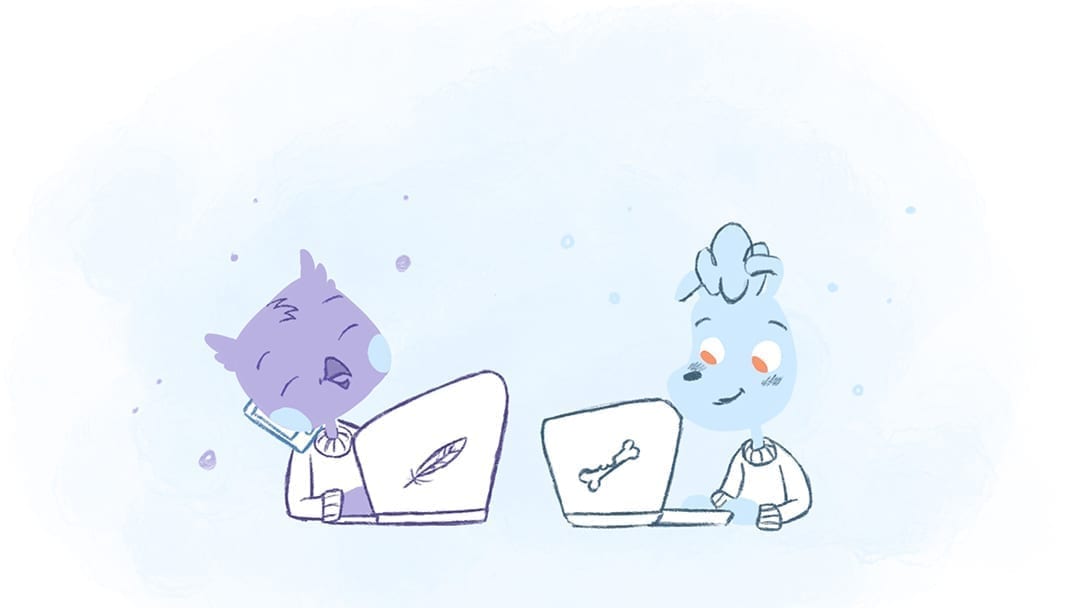

Nobody plans to fail — especially not small business owners. But many don’t plan well enough to succeed, either. And unfortunately, there’s no shortage of reasons why small businesses fail that you can fall victim to.
According to the Bureau of Labor Statistics, about 20 percent of new businesses fail in their first two years. Within five years, about 45 percent have closed up shop. Just over a third of new businesses make it past their first decade.
With this in mind, here are five of the most common reasons why businesses fail — and what you can do as a small business owner to prevent them from happening to you.
1. You didn’t do your research
A number of entrepreneurs start a business because they fall in love with their own idea. The problem: They can’t find enough people who love the idea enough to pay for it.
Similarly, startups often try to market a business idea so great that too many others have already developed it. As a result, a lack of market research is a common reason why small businesses fail.
How to avoid it
Before you commit to starting a business, conduct thorough market research. This entails:
- Evaluating potential market size. If you want to open a restaurant, for example, how many residents live or work in the vicinity. Of those, how many regularly dine out, and how often do they? Is there a demand for the type of cuisine you plan to serve at the price point of your eatery? Will the business serve mostly locals or rely on visitors in months heavy with tourism?
- Evaluating market participants. No matter what the market is that you plan to compete in, there is only a finite amount of business. Therefore you must evaluate who is already getting that business and decide one of two things: Can you entice enough of their customers to switch to your business or can you grow the overall size of the market?
If there is little competition for your product or service, ask yourself if there’s enough demand, then search for an honest answer. If there are already a number of competitors, can you find an underserved niche within the market, such as a specific demographic? At the same time, understand that while entering a crowded niche is difficult, it can be done.
2. You didn’t have an effective business plan
There’s a sense of adventure involved in starting a business. Unfortunately, many entrepreneurs start driving with little sense of where they’re going or how to get there. They just assume it will work out.
If you want to succeed as a business owner, you need an effective business plan to help you navigate toward success. Without this detailed roadmap, you may not discover until it’s too late that:
- The barrier to entry in the market is higher than you anticipated
- Your business processes are inefficient and creating too much overhead
- Your product mix doesn’t fit the market you’re trying to reach
- You don’t have enough capital to keep you going until you generate cash flow
How to avoid it
Simply put, take the time to create a business plan before you commit to your startup. Not only does the plan guide your business, but the process itself can also help you uncover potential pitfalls before you’ve made the investment.
There are a number of online templates to help you put together a business plan. Your plan should include a company description, the organizational structure, market analysis, your products and/or services, sales and marketing strategies, distribution, funding needs, and revenue and profit projections.
3. Your business wasn’t visible
Customers rarely just stumble upon a new business. It can happen, but most of your potential customers will find you through an online search.
Just having a website or a Facebook page isn’t enough for people to find you. Having just a website is the same as building a train station with no connection to railroad tracks: Nobody will ever find it.
A new business has to attract potential customers through search activity and direct them to its website. Otherwise, those people will take their business to your more visible competitors.
How to avoid it
Nowadays, every business plan and strategy must include digital marketing. Some of these efforts you may be able to do yourself. But it’s also advisable to seek out professional experts in digital marketing to enhance your visibility.
Your digital marketing strategy may include:
- Learning proper on-page search optimization techniques
- Publishing regular blog content on your website, as well as other websites relevant to your industry
- Regular social media presence, including targeted ads, on the platforms your potential customers likely use
- Pay-per-click advertising, in which you purchase, via an auction format, high search engine ranking ad space for specific keywords and phrases
- Collecting email addresses from customers and sending recurring e-newsletters with company updates and special offers
- Encouraging customers to leave online reviews to build credibility and social proof
- Developing a mobile app to provide a better customer experience
Needless to say, online visibility can make or break your business in today’s digital landscape. Failure to stay current and adapt to new trends is a common reason why small businesses fail.
4. You didn’t value your time properly
While it’s never a good sign for any small business owner, failing at time management is particularly problematic for service providers. A number of providers charge by the job, not by the hour. This is fine, except when the business owner starts crunching the numbers.
For example, a dog groomer wanted to charge $30 for a full-service cleaning and grooming. The problem: It took her about 90 minutes on average to serve one pooch. She was basically paying herself $20 an hour. Once she paid her overhead, she was barely making minimum wage. Surely her skill and expertise are worth more than that.
Another problem with time entrepreneurs run into is spending too much of it on tasks they don’t do well. Instead of paying a professional website designer, they try to do it themselves. Or they attempt to do their own accounting and tax preparation. While it may save you money on outsourcing now, shoddy work will cost you in the long run.
The time you spend on these tasks is time you’re not doing what you do bet to make money for your business. If plying your trade earns you, say, $100 an hour, then the six hours you spent trying to build a website just cost you $600 (and probably left you with more frustration than results). Chances are, you could have put that towards a professional web designer.
How to avoid it
Measure your time in dollars. Determine how long it will take to finish a job, then charge an appropriate amount based on how much your skill and expertise are worth. If you feel you are charging too much, then find a way to finish jobs faster.
When it comes to outsourcing, compare how much you’ll spend on a third-party professional to what you’ll lose in revenue by not focusing on your customers.
Perhaps above all though is the need to optimize your online calendar. As a small business owner, no one knows better than you how valuable your time is. Keep your calendar organized and easy-to-digest at all times.
5. You didn’t prepare for the unexpected
Even if you do all the above, bad things still happen.
Your physical location could be damaged by a natural disaster or vandalism. A customer could get injured using your product or service. A global pandemic could shut down your storefront for months.
These are just a few reasons why small businesses fail that are completely out of your control.
How to avoid it
First things first, you should build an emergency fund or access to credit to deal with potential business shutdowns.
Second, make sure you and your business are adequately insured. Property and liability insurance helps if something adverse happens to your business.
You should also be prepared in the event something happens to you. To protect you and your business against the risk of injury and illness, there are two types of disability insurance to consider.
Business overhead expense (BOE) disability insurance, as its name suggests, is designed to cover your monthly business overhead expenses if an injury or illness impacts your ability to work. This includes everything from employee salaries and benefits to utilities, supplies, services, and taxes. Your BOE policy will quite literally keep the lights on for your business if you become too sick or hurt to work for an extended period of time.
Then there’s long-term disability insurance. This coverage is designed to replace a major portion of your income if you are unable to work for an extended period of time due to injury or illness.
Just like your BOE policy will help you keep your business up-and-running while you recover, your long-term disability insurance policy will help you continue to meet your financial obligations in your personal life. This means being able to pay the bills, put food on the table, and provide for your loved ones in difficult times.
Key takeaways
Unfortunately, there are far more than five reasons why small businesses fail.
Although external factors can derail a small business, most failures result from one common theme: A failure to plan. Entrepreneurs often get so caught up in the excitement of running a business that they don’t take the time to plan their operations, marketing, and finances.
Yes, you want to be passionate about your business. You need a mission, and it’s great to have dreams for what you want the business to become.
But don’t forget to make a plan on how you’re going to do that. As the old saying goes: Failing to plan is the same as planning to fail.











Jack Wolstenholm
Head of Content and SEO at Breeze, the modern income protection company, and LeverageRx, the exclusive financial platform for doctors.